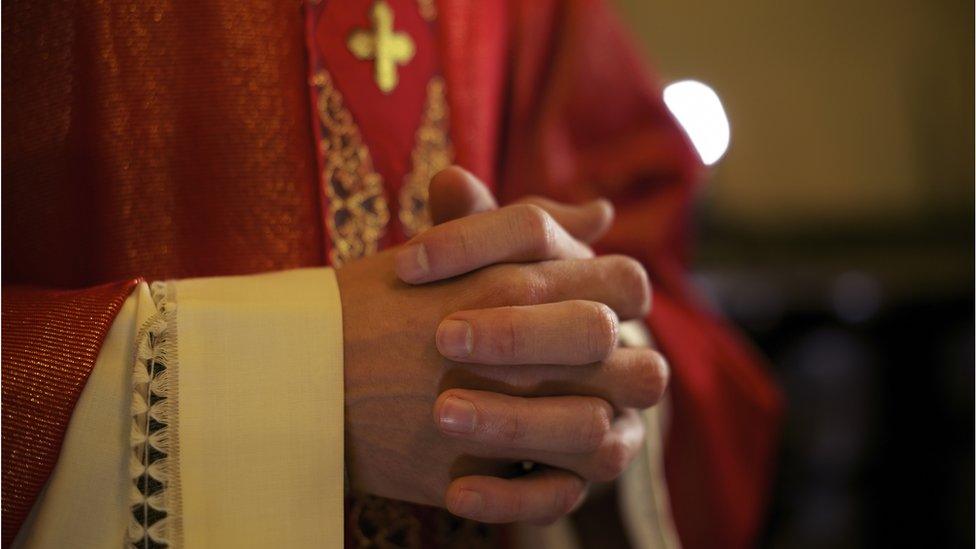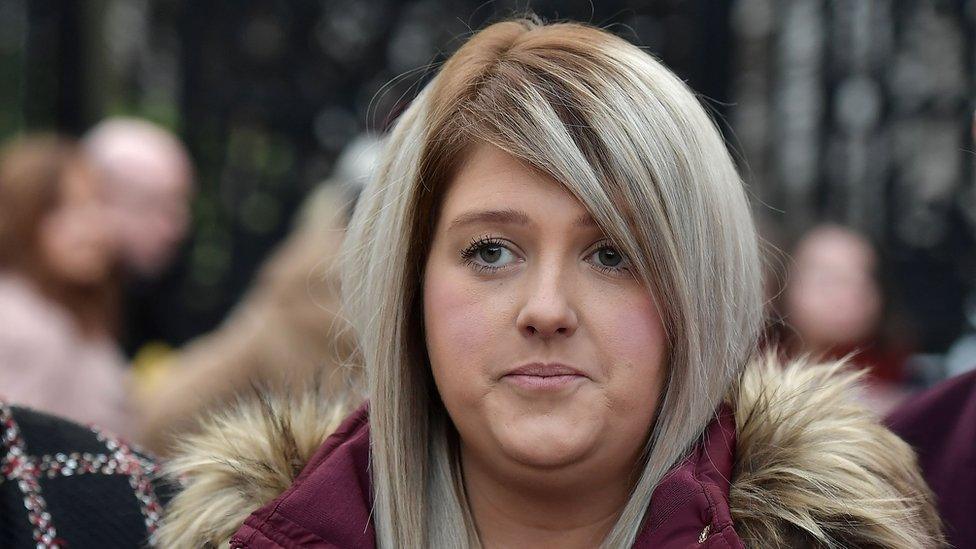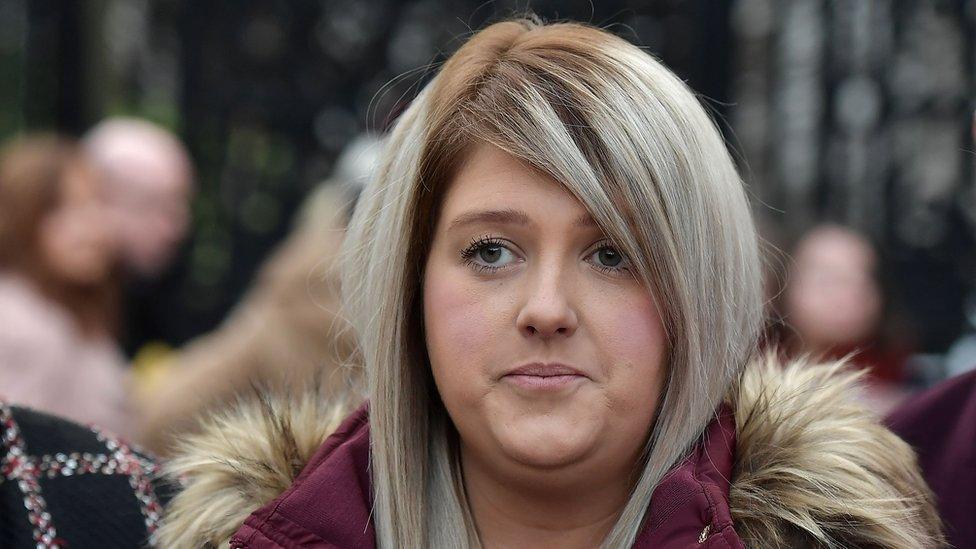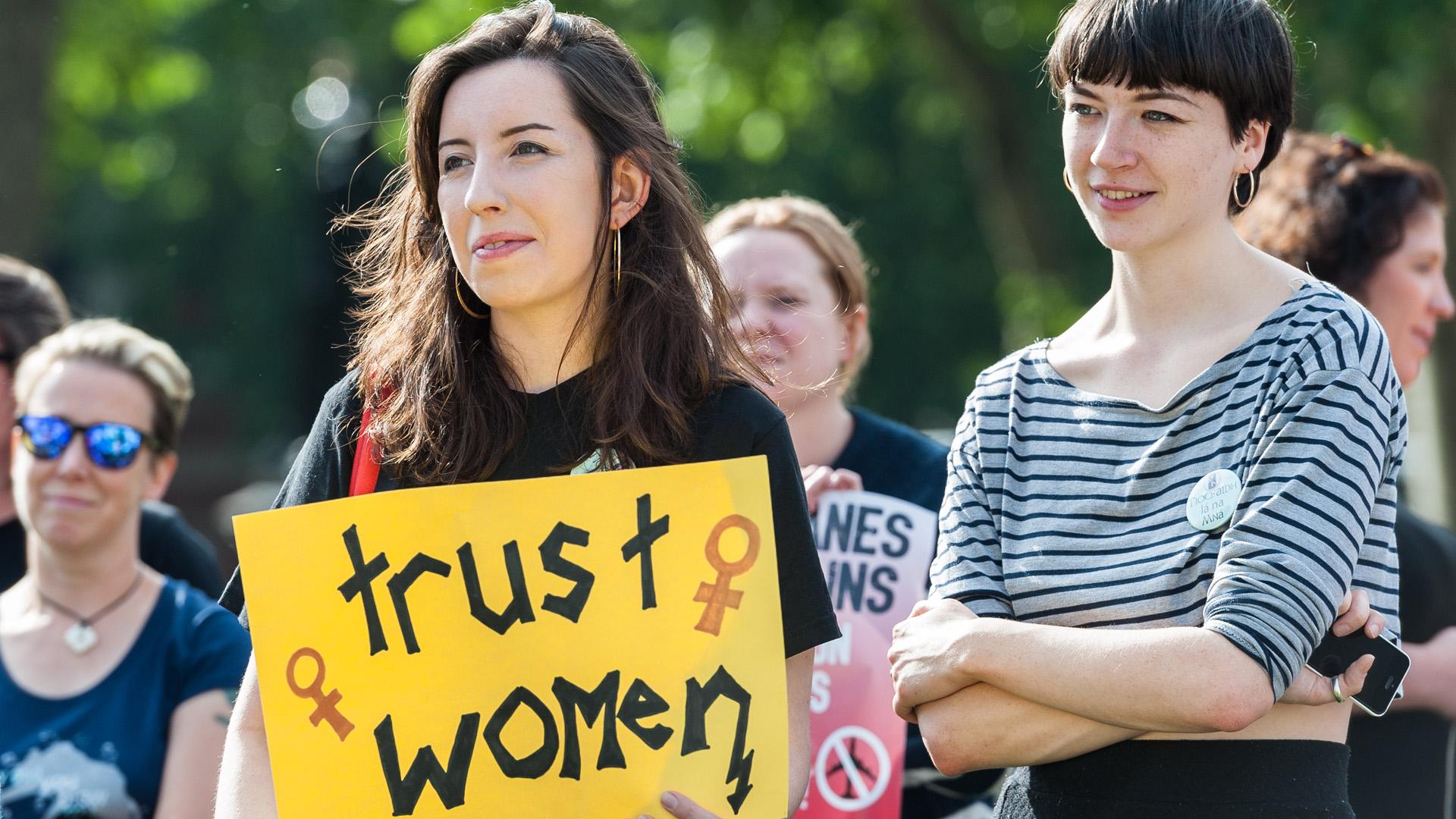Bishops' Conference express concern over abortion law changes
- Published

The Irish Catholic Bishops Conference said it is concerned by impending changes to abortion laws here
Catholic bishops have voiced their concern over impending changes to Northern Ireland's abortion laws.
Legislation brought by MPs at Westminster means abortion will be decriminalised by next April.
The new law will not take effect if the devolved government at Stormont is restored by 21 October.
The Irish Catholics Bishops' Conference said it "lamented the tragic rationale that renders an unborn child a commodity".
Same-sex marriage will also be legalised in Northern Ireland if devolution does not return.
Campaigning on the two issues has been particularly intense in Northern Ireland in recent years, as laws have been liberalised in the rest of the UK and the Republic of Ireland.
In a statement, the Bishops' Conference, which brings together all Catholic bishops on the island of Ireland, said "in Ireland, north and south, there are very specific threats to the respect and dignity that is due to every human life".
On Monday, the leaders of Ireland's main churches said they were concerned that unless the assembly was restored, abortion restrictions would reduce significantly.

What is the law on abortion in Northern Ireland?
Abortions are allowed in Northern Ireland if:
a woman's life is at risk
there is a risk of permanent and serious damage to her mental or physical health
An 1861 law made it a criminal offence to procure a miscarriage.
In 1945, an exception was added to say abortion could be permitted to preserve the mother's life.
But rape, incest or diagnoses of fatal fetal abnormality - where medics believe the baby will die before, during or shortly after birth - are not grounds for a legal abortion.

"Every voter and every political representative should be very clear that abortion is a brutal violation of the precious gift of life," said the bishops.
"To describe abortion as either healthcare or a human right is to twist language and to misrepresent the true meaning of those terms.
"An unborn baby is every bit as human as a growing toddler, a teenager or a grandparent."

Sarah Ewart, whose baby was not going to survive birth, travelled to England for an abortion
On Thursday, Northern Ireland's abortion law was found to breach the UK's human rights commitments.
The case was taken in Belfast by Sarah Ewart, who challenged the law after she was denied a termination.
The judge said she ruled in Mrs Ewart's favour as it was not right to ask another woman to relive the trauma that she had already experienced.
Mrs Ewart said the ruling was "a turning point for women" in their campaign against "outdated laws".
- Published3 October 2019

- Published25 September 2019

- Published22 October 2019
